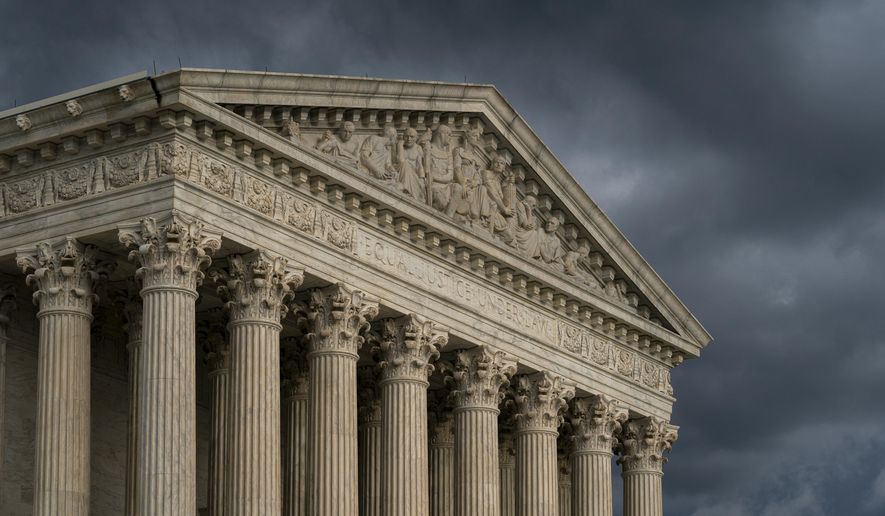The Supreme Court ruled Wednesday that a federal law letting judges slap mandatory jail time on registered sex offenders accused of violating release conditions, without giving them a new trial, is unconstitutional.
Justice Neil M. Gorsuch, writing the chief opinion, said the guarantee of a trial by jury is fundamental to the American system, and it can’t be short-circuited by Congress’s zeal to punish suspected criminals.
“Only a jury, acting on proof beyond a reasonable doubt, may take a person’s liberty,” he wrote.
The case involved a man convicted of possessing child pornography who was sentenced to 38 months in prison, followed by 10 years’ supervised release. While on release, the government said Andrew Haymond was then found with more child pornography images on his phone and computer.
A district judge ruled he likely knew about some of the images, and revoked his release. He said he would have ordered an additional two years in prison, but for part of the Sentencing Reform Act, which imposed an additional mandatory five-year sentence in cases of child pornography.
Haymond said it was unconstitutional to have a judge make determinations of fact — such as that he knowingly possessed the pornography — and to impose more jail time without getting a new trial.
Justice Gorsuch agreed, saying Congress’s attempt to impose higher sentences by judicial fiat was a “displacement of the jury’s traditional supervisory role.”
“Like much else in our Constitution, the jury system isn’t designed to promote efficiency but to protect liberty,” he wrote.
His opinion was joined by Justices Sonia Sotomayor, Ruth Bader Ginsburg and Elena Kagan.
Justice Stephen G. Breyer agreed with the outcome, creating the 5-4 majority, and said the way the court handled the discovery of new pornography looked a lot more like a new trial than a review of conditions of his release. But he said the ruling is limited, and only applies to one section of the law.
Writing in dissent, Justice Samuel A. Alito Jr. said if Justice Gorsuch’s opinion were taken to its logical extent, revoking any supervised release would require a jury trial, not simply a judge’s finding.
“There is simply no way that the federal courts could empanel enough juries to adjudicate all those proceedings,” Justice Alito wrote, adding “the whole concept of supervised release will come crashing down.”
Last year, he noted, federal courts held nearly 2,000 criminal trials and revoked nearly 17,000 supervised releases.
Besides, Justice Alito said, the founders never would have imagined that outcome from the Sixth Amendment’s jury trial guarantee.
“Today’s decision is based in part on an opinion that is unpardonably vague and suggestive in dangerous ways,” he wrote. “It represents one particular view about crime and punishment that is ascendant in some quarters today but is not required by the Constitution.”
His opinion was joined by Justices Clarence Thomas and Brett M. Kavanaugh and Chief Justice John G. Roberts Jr.
Josh Blackman, a professor at South Texas College of Law, called the decision evidence that Justice Gorsuch has inherited the late Justice Antonin Scalia’s role on the court as a conservative civil libertarian.
“But his concern for criminals does not arise out of empathy, but out of a skepticism of the federal government to enact such overbearing laws,” Mr. Blackman said.
• Alex Swoyer can be reached at aswoyer@washingtontimes.com.




Please read our comment policy before commenting.